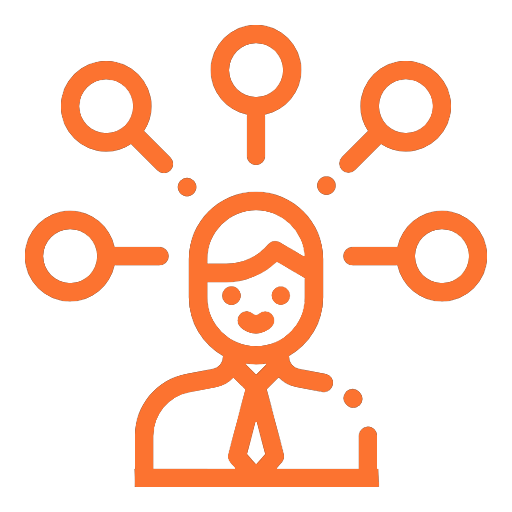


What We Do

Save Time
Based on your staffing needs, we reach out to our pool of qualified healthcare professionals to find you the best candidate that will fit your needs and requirements. We have reliable staff in no time, at your service and in no time.

Clients/ Facility Needs
Submit your facility needs and specifications via email, fax, call or contact our staffing coordinator.
Now hiring in Ohio!
- Competitive pay
- Flexible hours
- Weekly Direct Deposit
- Real Time Payroll Processing
- Electronic Self Scheduling
- Employee Benefits (coming soon)
- Referral Bonus Program
- Variety of healthcare settings to choose from
We provide services to
- Nursing Homes
- Skilled Nursing Facilities
- Assisted Living Facilities
- Temporary Contracts
- Per Diem to permanent placement
- Apply today or call us for more information!
Registered Nurse, or RN
Registered Nurse, or RN, is responsible for working with other healthcare professionals to help treat patients with various injuries, illnesses or disabilities. Their duties include communicating with Doctors and other Registered Nurses about patient needs, administering IVs and medications to aid their patients’ health and using medical equipment to monitor patients’ vital signs.
Registered Nurse (RN) is well-trained in administering direct patient care in different healthcare settings. They are well-versed in health management and monitoring, medication administration, updating patient’s medical records, wound care, and more. They work collaboratively with the healthcare team in developing and implementing the patients’ care plans. They also report the reactions and changes in the patient’s condition to the healthcare team and educate family members about their condition and necessary treatments.
Duties and Responsibilities
- Observe and record patient behavior
- Perform physical examinations and diagnostic tests
- Collect patient health history
- Counsel and educate patients and their families on treatment plans
- Administer medication, change wound dressings and care for other treatment options
- Read and interpret patient information, making treatment decisions when appropriate
- Consult with supervisors and doctors to decide on the best treatment plan for patients
- Direct and supervise nurses, nurse assistants and nurse aides
- Research ways to improve healthcare processes and improve patient outcomes
Licensed Practical Nurses (LPNs)
Licensed Practical Nurses (LPNs) care for people who are sick, injured, convalescent or disabled. They participate in the planning, implementation, and evaluation of nursing care, based on the objectives, standards, and policies of practical nursing. LPNs work under the direction of Registered Nurses and/or Physicians; the nature of the direction and supervision required varies by State and job setting.
Responsibilities include but are not limited to:
- Provides basic bedside care
- Maintains comfortable, orderly, safe, and clean environment for patients
- Measures & records patients’ vital signs (such as height, weight, temperature, blood pressure, pulse, respiration)
- Assists with bathing, dressing, and personal hygiene of patients
- Prepares and gives injections and enemas
- Monitors catheters
- Records food/fluid input/output
- Dresses wounds
- Assists with bed positioning, standing, and walking of patients
- Collects samples for testing
- Performs and administers (orally, subcutaneously) and records prescribed medications.
- Reports adverse reactions to medications or treatments in accordance with the policy regarding the administration of medications by a licensed practical nurse
- Assists in relevant health teaching for patient and family/significant other
- Records all care information concisely, accurately, and completely, in a timely manner, in the appropriate format and on the appropriate forms
- Performs other position-related duties as assigned, depending on assignment setting
Other Responsibilities:
- Performs other position-related duties as assigned, depending on assignment setting
- Completes required orientation as directed by facility
- Respects cultural and religious practices of patients
- Upholds HIPPA regulations Punctual and dependable for assigned/confirmed shifts
- Endure physical requirements, stand on feet for extended periods of time, lift 50-100 lbs., visual acuity, cognitive and assessment skills required.
Certified Nursing Assistant (CNA)
Certified Nursing Assistant (CNA): CNAs coordinate with the healthcare team and assist medical professionals in providing quality patient care. They are well-trained in working with patients and RNs in administering the patients’ care plans.
Responsibilities include but are not limited to:
- Taking vitals (blood-pressure, pulse, temperature, and respiration) according to protocol (established procedures).
- Measuring statistics. Recording intake and output, height, and weight.
- Obtaining routine lab samples not requiring laboratory personnel. Ex: stool sample
- Helping patients with ADLs (activities of daily living) for which they need assistance, such as bathing, combing hair, brushing teeth, shaving, putting on stockings and/or slippers, dressing, ambulation, and toileting.
- Helping patients with equipment for their treatment such as anti-embolism stockings, bladder scanner, intermittent pneumatic compression (IPC) devices, etc., as well as helping patients to move, transfer from bed to chair, or transporting them to other departments for testing or treatment.
- Infection control. Every medical employee is responsible for infection control, but because of the constant contact the CNA has with patients, it is critical for the CNA to know and follow the proper protocol in avoiding the spread of germs and spores which transport disease.
- Observation and reporting. Observing the patient and surroundings assists the nurse to assess the progress of the patient as well as any needs the patient might have for medical intervention. The certified nursing assistant will also observe and remove any potential hazards which could cause accidents.
